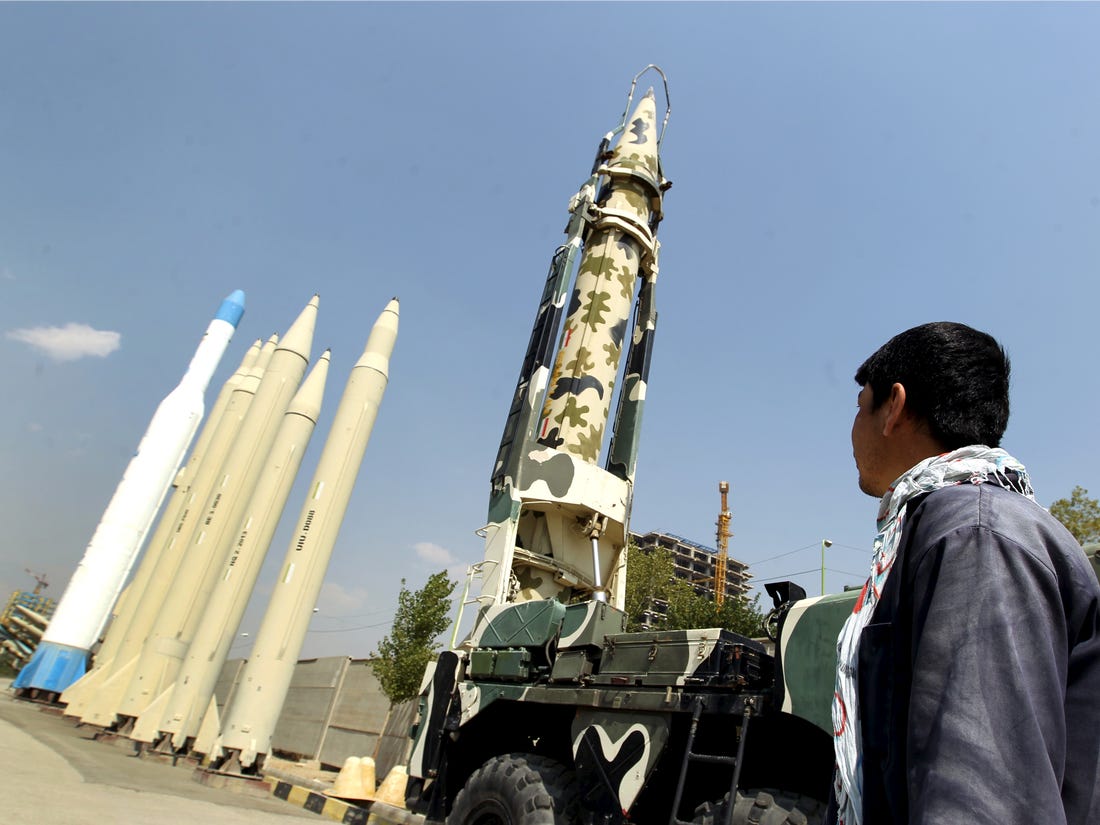Russia stays “committed” to selling anti-aircraft missiles to Iran despite US pressure

A few minutes every morning is all you need.
Stay up to date on the world's Headlines and Human Stories. It's fun, it's factual, it's fluff-free.
Moscow has made it clear that the escalating tensions between the US and Iran will not stop it from getting into a defense deal with Tehran.
As the expiry date, October 18, of the United Nations (UN) arms embargo on Iran draws closer, Russia has stated it will consider selling an advanced air defense system to Iran once the embargo ends.
Iran’s Tasnim News Agency reported that Russia’s ambassador to Iran Levan Jagarian told a Persian-language newspaper Resalat on Sunday, October 4, that Moscow would have “no problem” selling the advanced S-400 anti-aircraft system to Tehran despite pressure from the United States on the international community to further alienate Iran.
“We have said since the very first day that there will be no problem for selling weapons to Iran from October 19. We are not afraid of U.S. threats and we will live up to our commitments,” Jagarian said.
According to many analysts, the S-400 deal is a part of Tehran’s combat strengthening program against the US amid fears of American airstrikes on Iran, as tensions have increased between the two countries recently.
Jagarian also referred to Moscow’s sale of S-300 to Tehran following the international nuclear deal in 2015 between Iran and the five permanent members of the United Nations Security Council (UNSC), Germany and the European Union (EU).
Israel, a close ally of the US, had attempted to block the S-300 deal back then and is likely to do so again if Moscow signs an S-400 system agreement with Tehran after October 18.
Experts believe that such a deal could hinder a potential Israeli attack on Iran’s nuclear weapon facilities as the S-400 has the capability to track a vast portion of the Israeli airspace. It is likely to pose a threat to Israel’s aerial domination in Syria where it has destroyed dozens of targets linked to Iran and the Lebanese terror outfit Hezbollah.
Russia deployed its S-400 to Syria in 2015 where it is fighting in the Syrian civil war along with Iran on behalf of the Bashar Hafez al-Assad regime.
The S-400, believed to be one of the most advanced anti-aircraft systems in the world, has emerged as a key item in Russia’s defense exports since it was launched in 2007. The system’s four missiles travel at a speed of around 11,500 miles per hour with an ability to engage targets at a distance of 250 miles and an altitude of over 98,000 feet.
Russia’s S-400 deals have also led to friction in recent years between the US and Turkey. Ankara’s decision to purchase the anti-aircraft system irked Washington, which claimed that Russian influence on the Turkish military could jeopardize NATO security and compromise sensitive information.
In response, the US offered Turkey an American alternative to S-400 and also threatened to put sanctions on Turkey if it got into defense cooperation with Russia. Washington followed it with a declaration that Turkey would be thrown out of the F-35 fighter jet program due to security concerns related to the Russian deal. However, Turkey sealed the deal with Russia and took its first delivery of S-400 in July 2019 notwithstanding pressure from the Trump administration.
Along with Turkey, China and Belarus are already in possession of the S-400 while India and Saudi Arabia are reportedly in talks with Moscow over the purchase of the Russian anti-aircraft system.
In September, Washington unilaterally restored the UN arms embargo on Iran indefinitely after it failed to garner international support even from its close European allies like France and the UK. Russia and China, which are the major suppliers of military equipment to Iran, were the strongest opponents of Washington’s recommendation to extend the embargo.
The US also slapped sweeping new sanctions on Tehran to curb its nuclear, missile and conventional arms threats. Among those sanctioned were several high-profile Iranian officials and government bodies, including Iran’s Defense Industries Organization (DIO), its director Mehrdad Akhlaghi-Ketabchi and Venezuelan President Nicolas Maduro.
President Donald Trump signed an executive order in September by which the properties of individuals found involved in supplying, selling or transferring conventional arms and military equipment to and from Iran would be blocked, as well as the properties of those found providing technical training, financial support and services and other assistance related to these weapons.
Washington has consistently maintained its position that lifting the arms embargo on Iran would lead to instability in the region as Tehran would transfer its purchased weapons to regional proxies such as Iraq, Yemen and Lebanon that have become a hotbed of Iran-backed militias.
Have a tip or story? Get in touch with our reporters at tips@themilsource.com




Comments ()